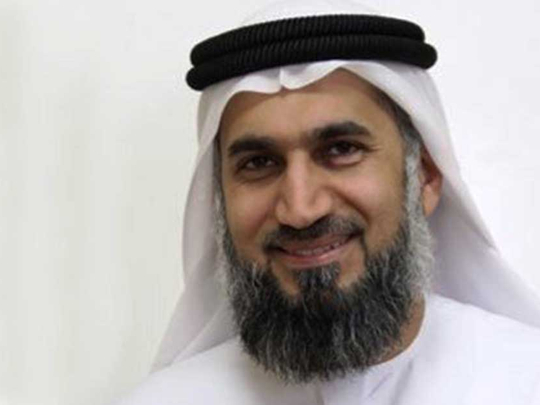
Dubai: It’s the hypertension or high blood pressure awareness month and in the UAE nearly 1/3rd of the people who turn 18 are likely to suffer from hypertension, a senior stroke specialist for the Dubai Health Authority, told Gulf News. Nearly 50 per cent of adults in the age group of 45 to 50 years have hypertension, he said.
Dr Sohail Al Rukn, stroke and neurology consultant and head of the stroke unit at Rashid Hospital and President of the Emirates Neurology Society said: “Hypertension is called the silent killer and in the UAE nearly 75 per cent of patients who suffered from stroke had high blood pressure. Of these nearly 50 per cent were not even aware they had chronic high blood pressure. Hypertension triggers cardiovascular diseases that include myocardial infarction, ischemic heart disease and stroke. Controlling high blood pressure can actually cut the risk of stroke by 30 per cent which means annually we can prevent nearly 1,000 strokes in the UAE. Stroke is one of the leading causes of mortality and chronic disability in the world.”
The World Health Organisation estimates that nearly one billion people globally suffer from hypertension and 2/3rd of these are in developing countries, including the UAE. By 2025, WHO estimates that 1.56 billion people will suffer from hypertension and that is why there is an urgent need to create a heightened awareness about it in the community.
In a first ever public-private collaboration, the Emirates Neurology Society in association with the Aster Hospitals and Clinics is holding a free hypertension prevention and screening campaign for three days beginning Sunday, May 21 to Tuesday, May 24, to educate residents about hypertension prevention and management.
Dr Sherbaz Bichu, COO of Aster Hospital, said the group intended to extend the campaign across 34 of their health care facilities including hospitals and clinics and aimed to create awareness in about 100,000 people. “All cardiovascular diseases, including stroke, result in a complete loss of quality of life and burden of care of the patient falls on the family. In many cases many of the expatriates who are breadwinners for their families tend to ignore signs of hypertension that is often triggered by stress, sedentary lifestyle and bad food habits and closer to retirement they suffer stroke and become a burden on their family. We want them to prevent this situation and be aware of prevention by this screening programme. Anyone who walks into our hospitals between 9am and 8pm will get free hypertension screening on these four days,” he said.
Dr Khalid Anwar, consultant in Physical Medicine and Rehabilitation and chairman of the Stroke Support Chapter of the Emirates Neurology Society, said it was important to focus on not just awareness and prevention of the occurrence of stroke, but management of it with proper rehabilitation facilities in the UAE. “Patients of stroke who receive proper and timely rehabilitation are able to not just return to their normal lives, but are able to avert secondary stroke occurrence, an incidence which is high in first-time stroke patients.”
What is blood pressure?
Blood pressure is a unit used to measure the systolic (when the heart beats and pushes the blood into the body) and diastolic (when the heart is resting) pressure. The upper reading in a blood pressure is systolic which is between 120-139. The lower reading is diastolic which is ideally between 80-89. A blood pressure reading of anything up to 140/90 is considered normal. A reading consistently and persistently above this is considered hypertension.
What residents can do to prevent hypertension?
1. Avoid stress and mental strain
2. Cut back salt consumption. The National Institute of Health recommends ingestion of not more than 2-5gm of salt per day which is approximately one teaspoon. One must not add extra salt in food
3. Give up packaged and canned food that has a high level of salt
4. Give up smoking that causes stiffness in arteries leading to arteriosclerosis
5. Have an active lifestyle that will reduce build of visceral or belly fat that is a precursor to hypertension
6. Cut down on obesity. A Body Mass Index (BMI) above 25 is a precursor of hypertension
7. Go in for regular screening as prevention is always better than cure












